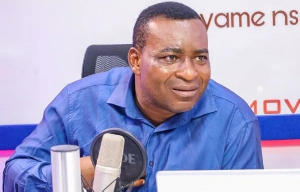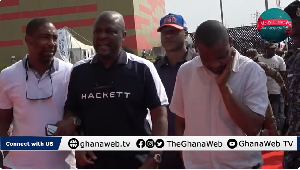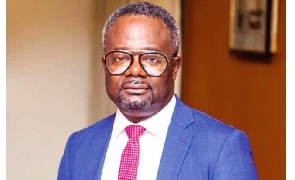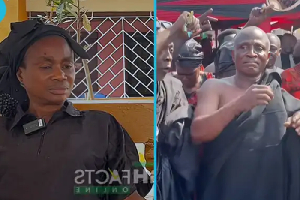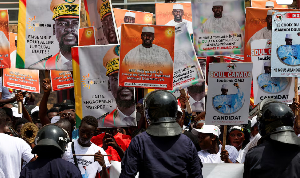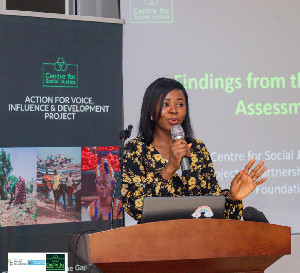By Dr. Michael J.K. Bokor
E-mail: mjbokor@yahoo.com
August 15, 2010
The screaming headline was enough to excite any reader’s concern: “Priest damns Mills, NDC and hails Nana Addo for 2012” (MyJoyFm online, August 15, 2010). To me, it didn’t only pique concern but it also aroused my disdain for those who abuse the pulpit to serve their parochial political interests.
The main story called forth more disdain: “A former President of the Methodist Church in Ghana, Rev. Samuel Asante Antwi has endorsed the candidature of NPP flagbearer Nana Akufo-Addo as the best to win the 2012 presidential elections, saying Mills has failed.
Rev. Asante Antwi says the Mills administration has failed to improve the lives of Ghanaians as promised during the party’s electioneering campaigns and wants Ghanaians to reject the NDC and vote for Nana Akufo-Addo in the 2012 polls.”
Rev. Asante Antwi made such pronouncements when he addressed a thanksgiving service attended by the NPP flagbearer and leading members of the party in Accra.
What irked me all the more was this aspect of his utterances:
“Let us put in the appropriate measures that we are the alternative government. We have forgotten a lot of people in this country. At times we don’t notice them as human beings and need to be cared for.”
Eureka!! Politician Asante Antwi, welcome aboard the ship of national politics. But you must have a big stomach for the nonsense that your politician-turned-priest status will evoke for you. I’ll fire the first salvo.
A religious leader who is worth his calling will not descend into the gutter this way. As someone who is vested with the “religious power” to bring the people together instead of putting a wedge between them for narrow and selfish personal interests, politician Asante Antwi’s conduct deserves condemnation. That’s what I am doing even if some people think that he is singing their song and should, therefore, be hailed. Hailing him may temporarily serve their sickening political purposes but it will turn out to be counter-productive, after all, when the dust settles.
The picture is clear that Asante Antwi is a dyed-in-the-wool NPP politician and not a Man-of-God who has been abusing the pulpit under the auspices of the Methodist Church. In his speech, politician Asante Antwi clearly identified himself with the NPP’s machinery by using the all-inclusive first-person pronoun: “US” and “WE.” By openly declaring his political interests this way and roping the Methodist Church into his brand of partisan politics, politician Asante Antwi has gone wild.
His use of the pulpit this way presents him as unconscionable and portends danger at several levels. First, it threatens social cohesion and will further the polarization that has been the cause for concern over the years. It adds to the ethnic dose—since Rev. Asante Antwi is an Asante and discerning minds will read deeper meanings into his politicking for the NPP (which itself has found it difficult to persuade Ghanaians that it is not purely an Akan-based party). Second, there is also the danger to the Methodist Church itself. How does politician Asante Antwi expect non-Methodists to take this waywardness? I bet that they will be incensed enough to advise themselves, which indicates that well-being in the ranks of the Church is threatened. Politician Asante Antwi has injected poison into the Church’s membership.
It is unfortunate that politician Asante Antwi, who was once the Presiding Bishop of the Methodist Conference, should allow his partisan, parochial political interests to take the better part of his calling. But should Ghanaians be surprised? Those of us who know Rev. Asante-Antwi may not be. Here is why:
1. Rev. Asante Antwi is nothing but a politician in the garb of a Methodist Minister. I have known him as such for many years now even though he has further raised his partisan “Mate Me Ho” politicking a notch higher than one would expect from a Man-of-God. As Head of the Kumasi Circuit of the Methodist Church, he served as an unofficial spiritual leader of the Danquah-Busia Club, which metamorphosed into the NPP. Those who were alive to his use of the pulpit for prosecuting this political agenda opposed him but couldn’t prevail. Some left the Methodist Church in protest.
2. In 1992 when the ban on partisan political activities was lifted by the Rawlings government, Reverend-cum-politician Asante Antwi made known his prejudices and hatred for everything Rawlings. The most glaring display of this hatred occurred when he once spoke at a gathering of members of the Kumasi Youngsters Club in Kumasi. That night, he told the gathering that he didn’t believe Rawlings when he said that he was ushering the country into a constitutional democratic system, and that he would believe Rawlings only if he saw Rawlings’ body in a coffin and he (Asante Antwi) was the officiating Minister at his burial service. Very chilling, indeed, coming from a so-called Man-of-God who is expected to work for the redemption of “souls.”
3. The impression created among Ghanaians that Rawlings had practised occultism and desecrated the Osu Castle—which invariably made it unfit for Kufuor and his family to reside in—can be traced to the doorsteps of the clergy, among whom is this Asante Antwi. Thus, to them, the Osu castle needed to be exorcised and sanctified before Kufuor could move in. With Kufuor’s blessing, they gathered at the Osu Castle to perform rituals after which they declared the residence sacrosanct enough for Kufuor to settle in.
We all know the intricacies of the web of mischief and plain thievery that surrounded this episode and the Osu Castle rehabilitation project within the same period through which Kufuor had satisfied his personal interests. After all that money had been expended on such projects, Kufuor didn’t move into the Osu Castle; but the demonization campaign that had the spiritual blessing of Reverend-cum-politician Asante Antwi boosted the NPP’s campaign of anti-NDC dirty politics. It oiled its machinery but couldn’t save it from defeat at the 2008 elections.
4. For his reward, Asante-Antwi was appointed as a member of the Council of State by Kufuor. With such characters in that body, one wonders what good advice Kufuor had to move the country forward. No wonder, then, that Ghanaians punished the NPP at the elections.
Reverend-cum-politician Asante Antwi has set a very bad example. Indeed, for our country to profit from the institutions that influence its citizenry at all levels, it is imperative for those in authority (including the clergy) to be guarded in their functions, especially public utterances and posture.
The case of the clergy in this sense deserves special attention. Presenting themselves as the conduits through which God’s message (of peace, unity, and love) passes to reach the people, the religious leaders have a bounden duty not to create tension in the society. They are enjoined to do or say what will bring the people together and not set them on edge to be at each other’s throat. That’s why a curb must be placed on these characters.
Exercising their political rights and privileges doesn’t involve abusing their religious calling. Openly declaring their political biases and seeking to use their pulpit to garner support for those they root for doesn’t fit into the tenets of their commission either. No one is suggesting that leaders of the religious communities should not be part of the political game; they are free to do so (after all, they are eligible to vote and should be abreast of political developments to know for whom to vote). But they must be careful not to push their partisan politicking too far. Their waywardness in this drive will be resisted fiercely by members of the church who don’t subscribe to their political allegiance. Therein lies the danger.
In fact, what Reverend-cum-politician Asante Antwi has done has more serious dimensions than my stricture will expose. I stand corrected but I am convinced that his muddying of the political waters within the ranks of the church will have a huge negative impact on the Methodist Church itself.
Rather surprisingly, the Methodist Church hierarchy appears to be unaware of the negative consequences of such an abuse of its pulpit. Other influential leaders of the Church should rise to the occasion to present a better image of the Church and cut off this waywardness. Unless they want to tell me that they tacitly support Asante Antwi’s abuse of the Church’s pulpit, they should make immediate moves to set people’s minds at ease.
What will happen if other influential leaders of the religious community mount platforms to do what this politician Asante Antwi has just done? How will we respond if the National Chief Imam, for example, also goes the way of politician Asante Antwi?
We already have a clear manifestation of the harm that polarization has done to our national psyche and are fighting hard to ensure that partisan politics doesn’t become the catalyst for national disaster. The constitutional ban imposed on chiefs is one measure to ensure that those who are perceived as the fount of authority don’t take sides and allow their partisan political interests to create tension in the society. The rationale is clear that no matter what a chief may be, it is not automatic for everybody in his traditional domain to support his political interests, especially at the level of the registered political parties. Thus, opposition to the chief’s political interests will set off time-bombs if not properly managed. The same applies to the clergy. It is for this reason that they must be exhorted to manage their public image and utterances properly. No one in non-political authority (chiefs, the clergy and leaders of other religious communities, especially) should abuse his calling the way this politician Asante Antwi has just done.
It is not out-of-place to suggest that efforts at separating the Church from the State must be expedited. In that sense, there is need for a constitutional provision to debar the clergy (the higher echelons) and notable leaders of the various religious communities from indulging in partisan politics. If we can do so to our chiefs, what prevents us from doing same to these people too? As the so-called leaders of the religious community, they wield much influence over the people and will pose a real danger to our society, especially if they allow their calling to be unduly influenced by partisan political considerations and misuse their calling. Reverend-cum politician Asante Antwi has indeed gone wild and must be feared.
Opinions of Thursday, 19 August 2010
Columnist: Bokor, Michael J. K.


